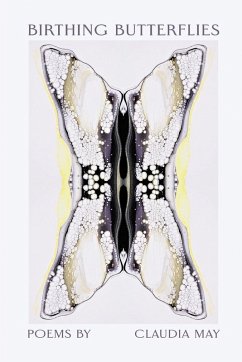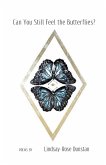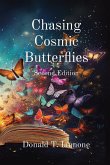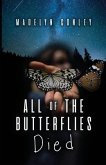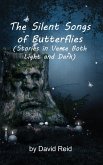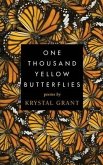Birthing Butterflies aligns the metamorphosis of butterflies, a symbol of transformation and resurrection, with nineteenth-century Black enslaved mothers. Like a cocoon, their wombs nurtured and birthed memories that sustained Black life. Just as butterflies take flight from the confines of their self-built shells, these poems explore how Black enslaved mothers inhabited Black love, joy, agony, freedom, and rebirth. They soared above the systemic structures of slavery set on diminishing their human dignity and dismantling their communal regard. Birthing Butterflies acknowledges the suffering Black enslaved mothers experienced when their difficult labors left them unable to control their bladder and bowel movements - a condition called obstetric fistula. These women endured countless surgeries without the aid of anesthesia when the nineteenth-century surgeon, J. Marion Sims, operated on their tender bodies. Birthing Butterflies recognizes the collective trauma shadowing the histories of Black enslaved mothers. Still, this collection of poems decenters Sims' presence by asking, what role did enslaved community members play in caring for Black women burdened with the infirmity of obstetric fistula? Who nursed these women as distress overcame their bodies and spirits? What hopes did they have for their children? Birthing Butterflies offers a humane appreciation of the vital spirit and robust legacy of Black enslaved women. Imbued with beauty and the paradoxical fullness of human complexity, their trauma stories are as restorative as they are harrowing, healing, and liberating. Set amidst a violent socio-economic and predatory slave system, this collection of poems begins with Black love. Black enslaved people upheld each other's priceless and treasured dignity. They affirmed what James Baldwin would later come to assert, that "a baby does not come into the world merely to be the instrument of someone else's profit."[1] Black (un)enslaved mothers embodied the vulnerability, fight, and emotional transparency of the blues. They invoked the agency of the spirituals that dwells in the depths of African diasporic cosmologies. Their speech and wisdoms relished the linguistic ingenuity of Black English and reveled in the dialectal flair of creole. Their nursery rhymes and lullabies were relatives to the dissonant timbres of Jazz and the exultations of lament. As memory keepers, their testimonies sang griot chronicles. In Birthing Butterflies, Black enslaved women become a sacred harbor as they abide in processes of luscious becoming for themselves and generations to come. [1] Baldwin, James. "An Open Letter to My Sister, Miss Angela Davis." The New York Review of Books, 19 Nov. 1970, www.nybooks.com/articles/1971/01/07/an-open-letter-to-my-sister-miss-angela-davis/.
Hinweis: Dieser Artikel kann nur an eine deutsche Lieferadresse ausgeliefert werden.
Hinweis: Dieser Artikel kann nur an eine deutsche Lieferadresse ausgeliefert werden.

